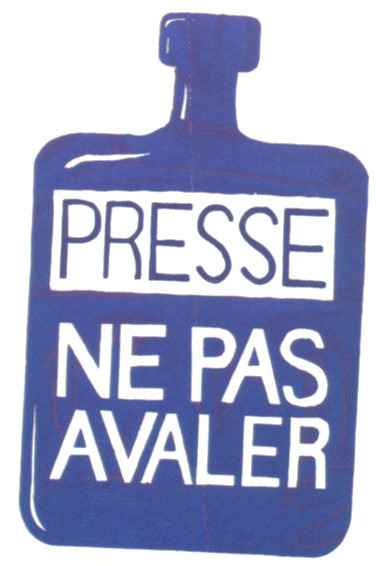[Original German Blog-Post]
 “Lord Weidenfeld peut opposer à ces violentes critiques [des médias], d’une part la dette de la démocratie envers les médias, dits lents, que sont le journal et le livre. Ils ont beaucoup contribué à l’éveil et au développement de la démocratie. Et il peut aussi mieux que tout autre, par son action pendant la guerre, indiquer la dette que nous avons envers les libertés lorsque, comme lui, on tentait de diffuser au-delà du terrain de la guerre et des atrocités une vision du monde plus acceptable et un avenir que l’on pouvait croire meilleur. Mais puisque j’ai évoqué les médias lents par opposition aux médias courts, je ne peux m’empêcher de plaider pour la vigilance à l’égard de ces médias courts. Vigilance ne veut pas dire procès. Nous avons besoin de mémoire, de réflexion et pas simplement d’informations. Cette réflexion me vient tout naturellement à l’esprit en pensant aux types d’informations qui concernent la construction européenne.”
“Lord Weidenfeld peut opposer à ces violentes critiques [des médias], d’une part la dette de la démocratie envers les médias, dits lents, que sont le journal et le livre. Ils ont beaucoup contribué à l’éveil et au développement de la démocratie. Et il peut aussi mieux que tout autre, par son action pendant la guerre, indiquer la dette que nous avons envers les libertés lorsque, comme lui, on tentait de diffuser au-delà du terrain de la guerre et des atrocités une vision du monde plus acceptable et un avenir que l’on pouvait croire meilleur. Mais puisque j’ai évoqué les médias lents par opposition aux médias courts, je ne peux m’empêcher de plaider pour la vigilance à l’égard de ces médias courts. Vigilance ne veut pas dire procès. Nous avons besoin de mémoire, de réflexion et pas simplement d’informations. Cette réflexion me vient tout naturellement à l’esprit en pensant aux types d’informations qui concernent la construction européenne.”
Media as means of stabilizing democracy and as weapon against disposal and artrocity is what Jacques Delors defends against ideologically motivated critics on ocassion of his speech honoring the awarding of the “Médaille Charlemagne pour des Médias Européens” to George Weidenfeld: Poison à ne pas avaler Media is much more then The rape of crowds by political propaganda. And thus already ten years ago Delors has shown a distinction, which anticipates our thoughts of the Slow Media Manifesto. Particularily the delicate process of the peaceful unification of Europe, often poisoned by national myths, is prone to foreshortened presentation and hardly to be reduced to the buzz-words of the Media Courts.
“Memory, reflection and not just information” form in opposite the Media Lents, the Slow Media. And accordingly his laudation on the truly cosmopolitan publisher Weidenfeld ends with a quote by UNESCO-secretary Federico Mayor on the continuity of the book:
“The book is the irreplaceable vehicle, unrivalled in the broadest reaches of the world of information and knowledge, of dreams and escape, and there is nothing to justify our foretelling its imminent disappearance.”
And regarding sustainability and duration of media, the chairman of the UNESCO executive board Golan Ali Raadi tells on occation of the opening of the headquarters in Paris with Firdausi’s words:
“The best-constructed buildings crumble under the action of the rain and burning sun,
But neither wind nor rain shall have any hold on the monument my verse has built.”